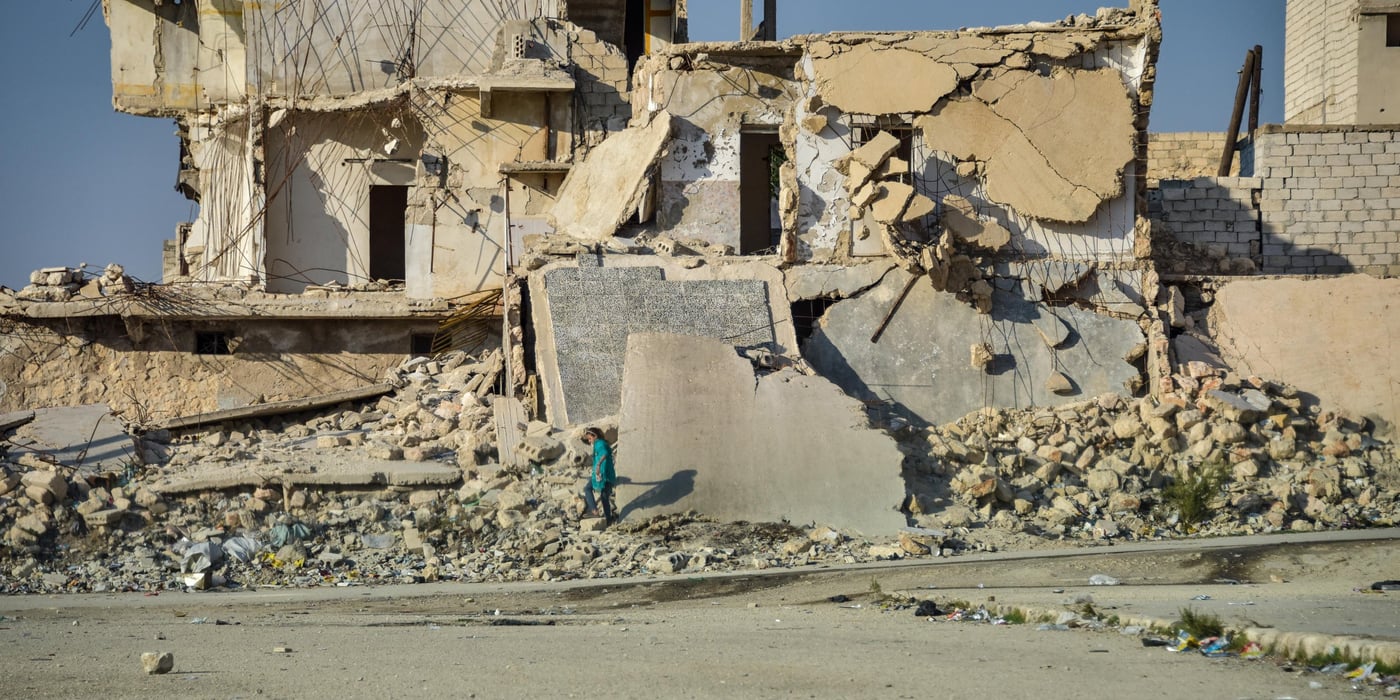
New findings released by NRC today show how families across Syria are struggling to cope as their incomes rapidly lose value in the face of spiralling price inflation. This has forced people to devise new survival strategies such as eating less, selling fuel aid to buy food, burning old shoes to keep warm, and skipping urgent medical procedures.
“Vulnerable Syrians face another decade of hardship, but the suffering can be stopped by international political will. While the humanitarian crisis in Ukraine continues to demand world attention, donors and governments meeting in Brussels must not forget about their commitment to Syria. The very survival of millions of vulnerable Syrians will depend on how much funding will be made available to meet their ongoing dire needs,” said Carsten Hansen, NRC’s Middle East Regional Director.
Among the over 400 people surveyed by NRC, only one in ten reported being able to meet the $206 USD needed each month to cover food, rent, education, and other essentials. Food tops the list of needs and is among the most rationed items for the majority of people separately interviewed by NRC in 2022, with 87 per cent saying they now have to skip meals to meet other living costs.
Rana*, who makes the equivalent of $10 USD from a week of babysitting in northern Syria, said, “We have to ration food when it comes to what and how much we are eating. We have replaced olive oil and rice with cheaper substitutes. Sometimes we have to cancel our power generator subscription because I cannot find the money. I would rather buy milk and diapers for the baby. I have one child left at school, but I know I might have to take him out soon. I can’t cope with the costs.”
The Ukraine crisis is deepening an already-chronic food insecurity crisis, affecting displaced Syrians inside the country and in neighbouring countries.
"The living conditions are very hard, like nothing we have seen. 2,000 pounds used to buy the main essentials – now it doesn’t get you anything. 50,000 pounds, if you can find it, won’t even cover you for one day.” said Sahar*, a mother of six living in rural Damascus.
When asked about long-term solutions to get out of the crisis, Syrian families told NRC that they would like to see more jobs created and cash assistance provided, along with food aid to offset soaring food prices.
NRC is warning that Syria is falling down the priority list of international funding and diplomatic efforts. The organisation is calling on donors meeting at the Brussels pledging conference to maintain existing humanitarian assistance levels for emergency responses, including cash-based aid. Donors should also increase funding for the restoration of public services and early recovery in Syria, such as in the water, health, agriculture, and education sectors.
Notes to editors:
- From January to March 2022, NRC interviewed 120 families across 7 governorates in Syria. The report findings are also drawn from surveys conducted with 406 households in November 2021 across the majority of governorates in Syria.
- An average family of five in urban areas, or six in rural settings, needs a minimum of 515,000 Syrian pounds ($206 USD at the official rate at the time of writing) to spend on core essentials: food, clothes, rent, transport, utilities, bills, education, and health. The national minimum monthly wage is 93,000 Syrian pounds.
- In Lebanon, disruption to imports has driven up the price of essentials like fuel and wheat, causing further shortages and eroding Syrian refugees’ purchasing power.
- NRC’s briefing note, “How are we expected to survive this?”, with all findings from the survey can be viewed here
- The 6th Brussels Conference on supporting the future of Syria and the Region will take place on 10 May 2022 to pledge humanitarian funding for the Syria response.
- NRC and Basmeh & Zeitooneh are co-hosting an online event on self-reliance among Syrians. Info and registration are available through this link.
For interviews or more information, please contact:
- In Amman: Ahmed Bayram, NRC’s Middle East, media and communications advisor, ahmed.bayram@nrc.no, +962790160147.
- In Oslo: NRC’s media hotline, media@nrc.no, +479056232.


